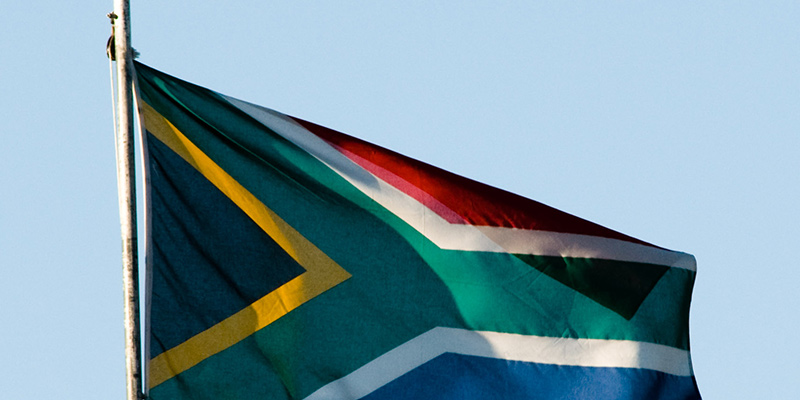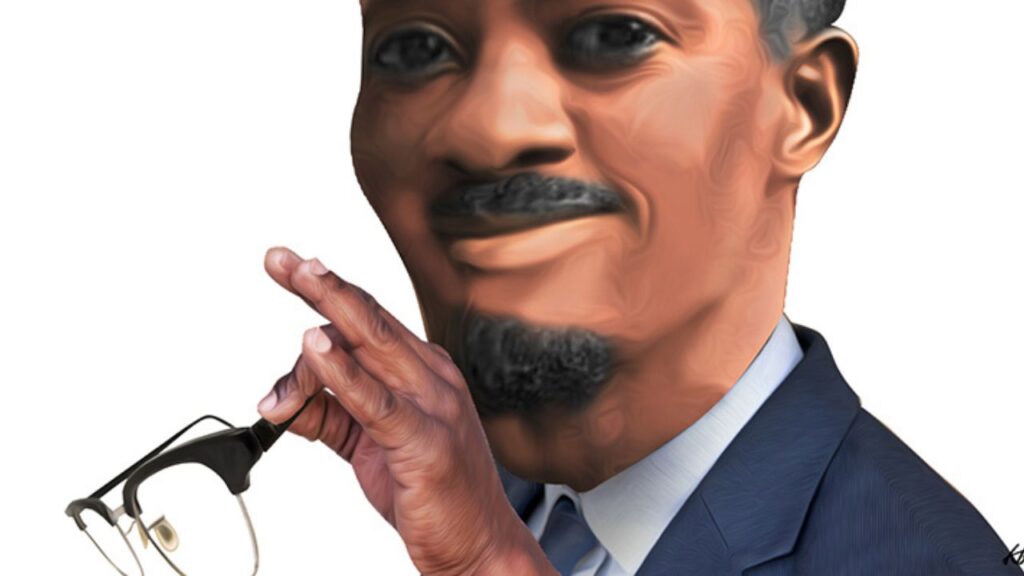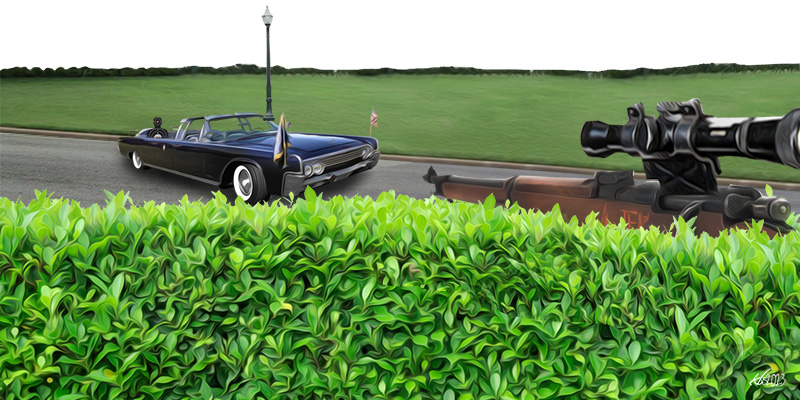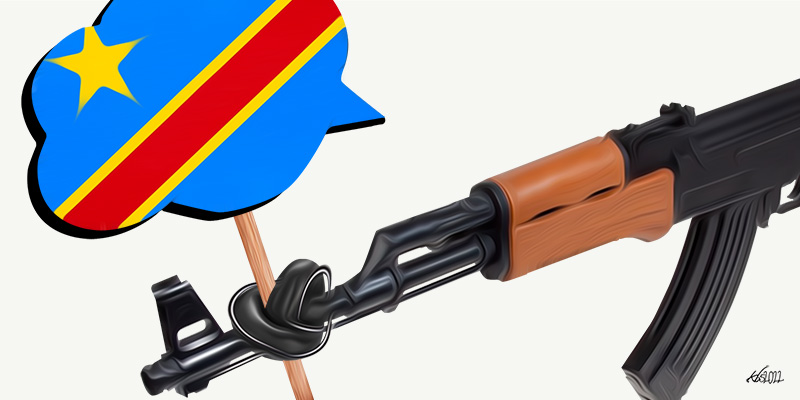Almost nine months ago, South Africa entered into a lockdown to curb the spread of COVID-19. The lockdown is still in place, but back then the restrictions imposed were incredibly severe: no one could leave their home unless to purchase food or medicine, and the now familiar category of “essential workers” were the only ones permitted to travel for work. Now that these rules have been lifted, some people are desperate to soak in the warm weather and taste a slice of normality. It’s easy to forget that the implementation of lockdown spelled confusion and disaster for most; easier still, to ignore the fact that despite the gradual reduction of reported cases, the economic impacts are only really appearing now, and things are looking grim.
And so, the debacle unfolding last week over retail company Clicks’ use of a racist advert on its website, is the clearest illustration of the erratic consciousness which characterizes South African public life. The advert, selling the American hair care brand TRESemmé, depicted a white woman’s hair as “fine & flat” and “normal” while a black woman’s hair was described as “dry & damaged” plus “frizzy & dull.” It goes without saying that the ad is reprehensible, offensive, and deserves the outrage its sparked. Yet, this is not the first thing Clicks has done in the last six months which is objectionable—in April, its workers accused them of forcing them to work without pay. It was also at one stage accused of price gouging, and, it wasn’t the only company implicated—across the board and throughout the lockdown, corporations partook in unfair labor and pricing practices in order to shift the economic burdens of the crisis to workers and consumers. Why did these practices produce little outrage?
The Economic Freedom Fighters (EFF), South Africa’s third largest party and one officially styling itself as “Marxist-Leninist-Fanonian” (they copy the late Hugo Chavez’s Bolivarian movement in their red uniforms), has been leading the moral crusade against Clicks. In doing so they have been incredibly effective, beginning last week with country-wide protests at a range of Clicks stores, and ending it by reaching an agreement with Clicks’ holding company to remove all TRESemmé products from its stores to be replaced by locally produced ones, as well as to donate 50,000 sanitary pads, sanitizers and masks to rural settlements chosen by the EFF.
These actions marked the return of the EFF to South Africa’s political scene after a long hibernation during most of the lockdown. In its initial stages, the EFF’s most notable call was for people to be quarantined on Robben Island. As it then became apparent that the state’s socio-economic response was lacking, prompting a mass civil-society mobilization to organize food parcels, extend social grants provision and ensure that there was basic support for the poor and vulnerable, the EFF was glaringly absent. But, this is supposed to be South Africa’s working-class party, and much as some on the left have long been disabused of the notion that the working-class is whom they represent, for the most part it’s still believed that the EFF is radical in some meaningful sense.
When the EFF first emerged as a political party in 2013, it was widely cheered as being a viable option to fill the void left in working-class politics in the wake of the Marikana massacre as the ruling African National Congress’ hegemony began to crumble. While the composition of its admirers included a diverse range—disgruntled local businesspeople, university students and the urban unemployed—its militant populist style was touted as left in orientation given its advocacy for policies such as nationalizing South Africa’s mines (which it is no longer that committed to), and land expropriation without compensation. (Two years later, as South Africa’s campuses erupted with #RhodesMustFall and #FeesMustFall, the EFF won SRC elections on many campuses.)
Nowadays, the party has become too loaded with contradictions for it to be considered left-wing in any credible sense, both in its ideology and practice. Besides its lack of internal democracy and the cult of personality surrounding its leader Julius Malema, some of the EFF’s lead figures have been embroiled in various financial scandals including municipal tender fraud and the ransacking of a mutual bank primarily serving informal rural, friendly societies. Throughout its history, the EFF has never had any moorings in the organized working class; it lacks any trade union affiliation (it enjoyed some informal links to the Marikana workers union, AMCU, but it was never formalized), nor does it have any concrete ties to other social movements like those for the unemployed or in mining affected communities.
Despite this, it clings vehemently to the rhetoric of class, and proclaims its opposition to capitalism although playing almost no part in trying to build a working class movement in South Africa. How then, are they still venerated by most as progressive, and taken at their word by even their naysayers who believe them to be sincerely anti-capitalist?
What explains this is that the terms of radical politics in the public discourse, have shifted from a materialist, class-rooted mode, to an identity-based, culturalist one, and the EFF have contributed to this shift and are its biggest beneficiary. In South Africa, where race is deeply embedded in everyday thinking and experience, the EFF has capitalized and revived the idea that black people possess a distinctive, social identity, therefore constituting a “people” whose political and material interests are uniform.
By positing some homogenous “black interest,” the EFF is able to flatten the contradictions of its political project, which at this point looks simply like a kind of economic nationalism, less opposed to capitalism per se, and more opposed to the fact that South Africa’s capitalist class continues to be dominated by “white monopoly capital.” The EFF’s biggest problem isn’t that capitalism concentrates wealth in the hands of the few, but that this few are predominantly foreign, white or Indian.
In this crucial way, the EFF’s class project is actually just continuous with that of the ruling African National Congress, which since 1999 has been facilitating the rise of a supposedly patriotic, black bourgeoisie whose economic upliftment is meant to be synonymous with the progress of black people as a whole. South Africa’s political class in the main has never parted with this thesis. All that’s really contested, is how swiftly or not this is happening. According to the EFF—along with the Radical Economic Transformation (RET) faction of the ANC, led from the shadows by Malema’s former mentor and former president Jacob Zuma—it is not happening quickly enough.
In South Africa, where race is deeply embedded in everyday thinking and experience, the EFF has capitalized and revived the idea that black people possess a distinctive, social identity, therefore constituting a “people” whose political and material interests are uniform.
Instead of being a serious challenge to the ANC’s apparently declining hegemony, the EFF is more accurately an expression of its resilience. The EFF’s sustained inability to articulate a coherent political identity on its own stems from the simple fact that rather than being fascist (as some proclaim), it simply is just a wandering faction of the ANC, its prodigal son.
Yet, it is Frantz Fanon himself who warns against thinking that this project of establishing a state-led, indigenized capitalism is in any meaningful sense progressive. As he writes in the Wretched of the Earth:
Yet the national bourgeoise never stops calling for the nationalization of the economy and the commercial sector. In its thinking, to nationalize does not mean placing the entire economy at the service of the nation or satisfying all its requirements. To nationalize does not mean organizing the state on the basis of a new program of social relations. For the bourgeoisie, nationalization signifies very precisely the transfer into indigenous hands of privileges inherited from the colonial period.
Even if we could successfully transform the capitalist class so that it was demonstrably black, the underclass to which it is causally connected to, whose deprivation makes possible the other’s wealth, would still be black! Framing inequality primarily as racial disparity misses that it is now actually intra-racial inequality that is contributing more to total inequality. But more importantly, it expresses a fundamentally misplaced concern about the problem. As Adolph Reed Jnr. and Walter Benn Michaels recently wrote, “What we’re actually saying every time we insist that the basic inequality is between blacks and whites is that only the inequalities we care about are those produced by some form of discrimination—that inequality itself isn’t the problem.”
The racism that was on display in the advert approved and displayed by Clicks is very much present in our society. But, it is not the definitive issue of our time, nor does it have to be for us to give it appropriate concern and attention. In corporate workplaces, university settings, Model-C or private schools and hospitality venues like hotels or restaurants, racial discrimination and prejudice very much persist and must be opposed. But ultimately, these are also (elite) spheres where the majority of the country are excluded from altogether, and the consequences of the struggles for recognition operative in them have little bearing for the lives of most poor, black people.
Racism does have a significant bearing on their lives, but to paraphrase and modify Stuart Hall’s turn of phrase, it is an experience of race lived through the modality of class. Consider how throughout most of the lockdown for example, dangerous stereotypes were peddled about the working class. When an increase of the child support grant was being considered, poor and working black people were often cast as financially irresponsible and bound to use the funds on drugs. When the lockdown began easing and returning workers refused to work in unsafe conditions, they were lazy and selfish. When the alcohol prohibition was lifted, and there were spikes in trauma incidents at hospitals, it was poor and working class people who were blamed. It was the middle class and ruling elite of all races and across the political spectrum that happily took part in this demonization.
By positing some homogenous “black interest,” the EFF is able to flatten the contradictions of its political project, which at this point looks simply like a kind of economic nationalism, less opposed to capitalism per se, and more opposed to the fact that South Africa’s capitalist class continues to be dominated by “white monopoly capital.”
As my friend and comrade Awande Buthelezi once eloquently put it to me (channeling Walter Rodney), in post-apartheid South Africa, it’s not so much that people are poor because they’re black, but they are black because they’re poor. What this means is that that the most egregious racialization, that is, literally treating particular groups as possessing characteristics inherent to their nature, happens concomitantly with their particular economic subjugation. What people now often refer to as “classism” is actually just racism by another word. The word classism was only popularized to accommodate the false notion that black people couldn’t be racist, not least against their own race—which misses the important point that while race isn’t real, racism definitely is. And to express contempt for working class people, treating them as if they were a cultural identity (an apparently primitive and conservative one at that), and not an objective social relation rooted in political economy, is precisely to engage in racializing them. The basic insight of all this is that racial ideology provides the justification for continued economic exploitation. As the American sociologist Oliver Cromwell Crox explains, “to justify humanly degrading labor, the exploiters must argue that the workers are innately degraded.”
Why then, are people poor? It’s always been because of capitalism, and at the moment every single opposition force in South Africa treats it as its perennial premise. To borrow a phrase from Karen and Barbara Fields, people treat apartheid as if its chief business was producing white supremacy rather than mining gold, diamonds and platinum. Our society is essentially classist, therefore it is essentially racist. But, what is liquidated in the turn of understanding social cleavages exclusively through identity is the class antagonism which actually grounds the material interests which shape political life—the antagonism between wage labor, capital, and the professional managerial strata in between.
In forever using race as a proxy for class, we ignore that race is no longer a reliable predictor for class position, and that this was always bound to become the case in a country where black people are a substantial numerical majority. The interests of black people are not, could not be the same, and to posit them as such is to make possible a public sphere in which actual working class interests are sidelined and ignored. With the public sphere now more or less being entirely the vapid abyss that is social media, a significant portion of the country is excluded from public life; for example, only 53% of South Africans have access to the internet.
The gravity of the issues facing the majority of South Africans such as skyrocketing unemployment, a deepening hunger crisis, water shortages and drought, as well as the crisis of social reproduction which manifests in escalating gender based violence made last week’s debacle feel painfully myopic. South Africans have always known the magnitude of the challenges before us, but what we are still unwilling to admit is that we are in the grips of a global, systemic, and worsening capitalist crisis, not simply seeing through a passing pandemic or set back by temporary issues of governance and state incapacity. In the face of all this, the EFF’s actions are nothing more than asking that corporations be woke in their profiteering, leaving production for profit unchallenged as the basic principle of social organization.
It is Frantz Fanon himself who warns against thinking that this project of establishing a state-led, indigenized capitalism is in any meaningful sense progressive.
No political party in South Africa today presents a credible alternative, not even the Democratic Alliance, the official opposition who recently announced that it was officially adopting a policy of “non-racialism”—which is as laughable as the EFF claiming to be Marxist-Leninist-Fanonian. The DA sits on a pretend moral high ground and professes to be against racial identity politics while being committed to it in practice.
This year, the DA has campaigned to have farm murders (of white farmers) be declared a national emergency and categorized as hate crimes, treading not far from the right-wing conspiracies that claim there is a white genocide ongoing in South Africa. Rather than accepting, as the evidence shows, that this falls part of the general pattern of violent crime and social disorder and that poor black people are crime’s main victims (a symptom of worsening poverty and inequality), the DA tries to construct some special victimhood for white South Africans, despite remaining firmly wedded to the current economic system.
The culture wars in South Africa are simply a battle for the soul (read race) of the ruling class, the political elite scrambling to be captains of the Titanic while the ship sinks and the world around it burns. It’s all a distraction, and what’s left of the progressive left must ignore it. It is only the working class and its constituent social movements presenting a credible vision for social transformation in the short and long term, emphasizing that the emancipation of the working class is the emancipation of all. That there is a way out—and not merely drifting aimlessly and precariously on a lifeboat trying to survive, but towards a society free of domination and exploitation, one that is truly non-racial and non-sexist.
It is exactly this universalist impulse driving the solutions being put forward by a collection of burgeoning movement coalitions, such as the COVID-19 People’s Coalition, the South African Food Sovereignty Campaign and the Cry of the Xcluded, and include things like introducing a basic income grant for all, to adopting a people’s climate justice charter and green new deal that ends our original sin of mineral extractivism while shielding us from ecological catastrophe. As the old order crumbles, rather than present solutions underpinned by a substantive vision of what constitutes the good society, South Africa’s political class resorts mostly to empty and inane posturing. When our political parties have recourse to the realm of identity and culture, it is a smokescreen for their lack of political legitimacy and programmatic content. It is cynically unpolitical. It’s all bullshit.
And sincerely, there is no time for bullshit. The stakes are too high. The left re-emerging in South Africa must declare unapologetically: no war but class war.
–
This post is from a new partnership between Africa Is a Country and The Elephant. We will be publishing a series of posts from their site once a week.








